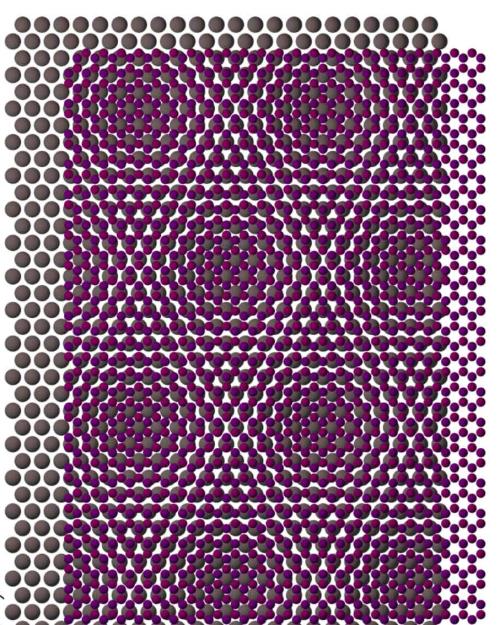Physicist Kin Fai Mak has received a $1.25 million grant from the Moore Foundation Experimental Physics Investigators Initiative to further his research into electron behaviors by studying two-dimensional crystals.
“Kin Fai Mak and his colleagues have made tremendous, even astonishing, strides in exploring the quantum realm over the past decade,” said Ray Jayawardhana, the Harold Tanner Dean of the College of Arts and Sciences and lead dean for the Cornell Quantum Initiative. “The recognition and support from the Moore Foundation will boost their efforts, providing new insights into the fundamental nature of matter and possibly paving the way for radical new technologies.”
With the grant, Mak will develop a technique to exert even greater control over the structure of 2D materials, giving unprecedented insight into electron behavior and quantum phenomena. The project will develop an approach to control the lattice structure of a two-dimensional material by gate voltage.
“The lattice structure of solids plays a defining role in the electronic properties of materials,” said Mak, professor of physics in A&S and associate professor of applied and engineering physics in the College of Engineering. “Currently, there is no experimental approach that can vary this important attribute of solids at will without changing their chemistry. The realization of electrically tunable lattice structure in solids will allow us to create nearly any states of matter in a single material.”
The idea for controlling 2D materials with a gate stems from the recently discovered moiré materials, which form when two sheets of crystals are overlaid with small orientation or lattice differences. The resulting interference produces temporary arrays of larger-than-normal atoms that allow researchers to manipulate a material’s lattice structure, controlling new electronic states of matter that don’t exist in the original materials.
The success of the project will allow the researchers to not only create nearly any states of matter in a single material, but also to control these states on the ultrafast time scales.
“I feel tremendously lucky and honored to receive the Moore funding, which will allow my group at Cornell to take risky steps to explore moiré materials as a platform for quantum simulation in new ways,” Mak said.
Mak, the sole principal investigator on this grant, leads a joint research group with Jie Shan, professor of applied and engineering physics, College of Engineering, and professor of physics (A&S).
For more than 10 years, the husband-and-wife team has worked with the 2D material molybdenum disulfide and other closely-related 2D crystals, showing how these materials can serve as a laboratory for all kinds of condensed matter physics.
This story also appeared in The Cornell Chronicle.




